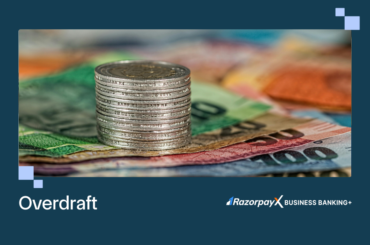Table of Contents
What is a Business?
A business is a group of people that come together to engage in commercial activities to generate revenue and make a profit.
Businesses offer products or services to customers in exchange for payment. Depending on the ownership and size of the business, we generally categorize businesses into sole proprietorship, partnership and registered company.
How Does a Business Work?
All businesses start as an idea. An innovative entrepreneur comes up with an idea, that she can scale up into a money-making trade. The very first step to establishing a business is to create a business plan.
A business plan is a document that outlines the goals, strategies, funding sources and all the details that go into starting and running a business.
Once this detailed business plan is ready, the founder approaches investors, banks or her own funds to finance the business. This money invested into the founding of the business is called capital.
The main objective of any business is to make a profit. In the early years of business, the bottom-line number is usually in the negative, but with the right planning, budgeting and management, businesses eventually become and remain profitable.
Types of Businesses
Depending on the ownership structure, there are three types of businesses.
Sole Proprietorship
A sole proprietorship is a business that is owned and managed by a single individual. This person is responsible for all the tax and legal liabilities of the business. This means that if the business goes bankrupt, the founder will have to pay off debts from personal assets.
On the other hand, the founder enjoys all profits from the business without having to share or divide amongst other shareholders.
Partnership
A partnership is a business that is founded and managed by two or more people, who work together as partners. They share resources, responsibilities, as well as any profits or losses that the business brings in.
The division of stakes between partners can be equal – a 50:50 split, or a 25:25:25:25 split. It can also be an unequal split – 60:40 or 30:70.
Private Company
A private company is one which is owned by a group of individuals, who own shares in the company and bear its losses or receive any profits as per their stake in the company. These shareholders are usually the founder’s friends and family, or private investors.
Unlike a sole proprietorship or partnership, the owners of a private company do not always manage the operations of the business. Privately traded companies are not required to disclose their financial information to the public.
Public Company
A public company is a business that is owned and funded by the public. Shares are offered to the public in an Initial Public Offering (IPO). Members of the public can buy or sell shares of this company on the stock market, and will then have to bear the company’s losses or profits.
Public companies are required to disclose their financial information, statements and all important details to the public. They are tightly regulated by government agencies like India’s SEBI or the U.S. SEC.
Sizes of Business
Depending on the amount of capital invested, the revenue generated and the number of employees, we classify businesses into three sizes.
Small Businesses
Businesses with a turnover of less than Rs 5 crores, and capital investment of less than around Rs 25 lakhs come under the MSME (Micro and Small Enterprises) category.
In India, there are thousands and thousands of MSMEs – restaurants, grocery stores, mechanic shops and more. They are usually owned and operated by one or two individuals, or a family, and employ limited staff.
Medium Sized Businesses
These businesses are bigger – they bring in much more profit and require more operating capital than MSMEs. They also employ a much bigger staff of around 100-1000 people and might operate in multiple locations.
Enterprises with turnover between Rs 75 crores and Rs 250 crores can be called medium-sized business. Capital investment by medium-sized businesses is usually between Rs 2 crores and Rs 5 crores.
Large Businesses
The biggest kinds of businesses operate as companies across several states or even countries. They employ a staff of more than 1000+ people and bring in turnover of more than Rs 250 crores. These businesses are usually publicly or privately owned companies and are regulated by government agencies.
These businesses also follow a hierarchical structure within the employees and are organized by departments – the HR department, finance department or sales department.
Examples of Businesses
Tata Group
The Tata Group is one of India’s largest and most diversified conglomerates. Founded in 1868, the Tata Group has businesses across various sectors, including automotive, steel, information technology, telecommunications, hospitality, consumer goods, and more.
Some of the prominent companies under the Tata Group umbrella include Tata Motors, Tata Consultancy Services (TCS), Tata Steel, Tata Power, Tata Chemicals, and Taj Hotels.
Flipkart
Flipkart is an e-commerce company headquartered in Bangalore, India. It was founded in 2007 and has emerged as one of India’s leading online marketplaces.
Flipkart initially started as an online bookstore but expanded its product range to include various categories such as electronics, fashion, home appliances, and more.
The company has played a significant role in shaping the e-commerce landscape in India and has garnered a large customer base. In 2018, Flipkart was acquired by Walmart, further strengthening its position in the market.
How to Start Your Own Business
Entrepreneurship drives innovation, creates employment opportunities and contributes to economic growth – more importantly, starting your own business gives you freedom and the opportunity to follow your dreams.
Starting your own business has never been easier. With the support and resources available to budding founders today, India is home to the most potent startup ecosystem ever.
Here’s a quick rundown of the steps to start your own business.
- Idea Generation: Identify a business idea that aligns with your interests, skills, market demand, and profitability.
- Market Research: Conduct thorough market research to understand your target audience, competition and industry trends.
- Foolproof Business Plan: Create a business plan with your goals, target market, products or services, marketing strategies, operational structure, and financial projections.
- Secure the Funding: Determine the financial resources needed to start your business. Explore options such as personal savings, loans, grants, or seeking investors.
- Hiring and Team Building: Determine the manpower requirements and recruit skilled individuals who can contribute to your business’s success. Set up necessary HR processes and policies.
- Procurement and Inventory: Identify reliable suppliers, establish relationships, and procure the necessary inventory or raw materials required for your business.
- Marketing and Promotion: Utilize various channels such as social media, online advertising, print media, and networking events to reach your target audience.
- Launch and Operations: Execute your business plan and officially launch your products or services. Ensure smooth operations by continuously monitoring and improving your business processes.
- Financial Management: Establish sound financial management practices, including bookkeeping, budgeting, tracking expenses, invoicing, and managing cash flow.
- Adaptation and Growth: Continuously evaluate and adapt your business strategies based on customer feedback, market dynamics, and industry trends.
Read more: 10 Tips On How To Start A Business
Online Business
The most popular form of business today is one that is entirely run on the Internet. An online business offers multiple benefits to the founder and the customers.
Since there is no need for infrastructure or a physical location, anyone can start a business online. Some examples of highly successful online businesses – Ola, Paytm, MakeMyTrip and so much more.
All you need is a robust website or mobile app, and digital marketing strategies, and you’re set!
Related Read: How To Start an Online Business Without Investment?
Business Funding and Finances
The biggest problem that startup founders face is financial management. While it is important to know how to get money to fund your business, arguably more important is knowing how to best use that money.
Idle money should be invested wisely to ensure maximum returns. Operating capital should be stored safely in a robust system that makes financial management as easy as possible.
Financial management for business doesn’t only mean money management. It also includes:
- Invoice management
- Vendor management
- Payroll
- Capital management
- Accounting
- Tax management
The best financial platform for businesses should provide seamless support for all these requirements.
FAQs
What is the definition of business?
A business is an organization or entity engaged in commercial, industrial, or professional activities to generate profits. It involves the production, sale, or provision of goods and services in exchange for monetary compensation.
How can I start my business?
To start your own business, develop a solid business plan outlining your goals, target market, and financial projections. Secure necessary funding and resources, and take the necessary steps to legally register your business before launching your products or services.
What is profit in business?
Profit in business refers to the financial gain or surplus earned when the revenue generated from sales or services exceeds the total expenses and costs incurred. It represents the net income or positive difference between the total revenue and total costs of a business.
What are the types of business?
There are 4 types of business: sole proprietorship, partnership, private company and public company.




